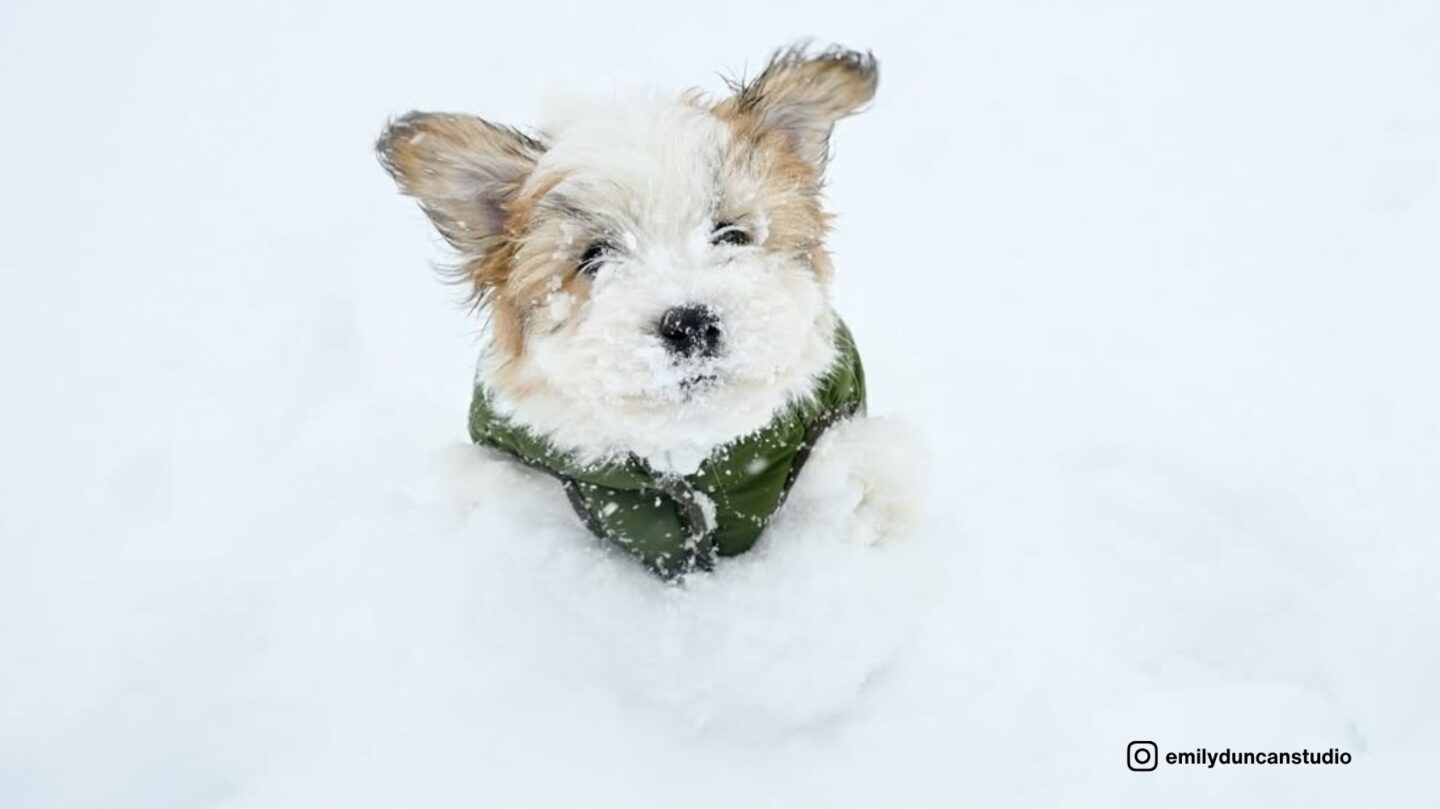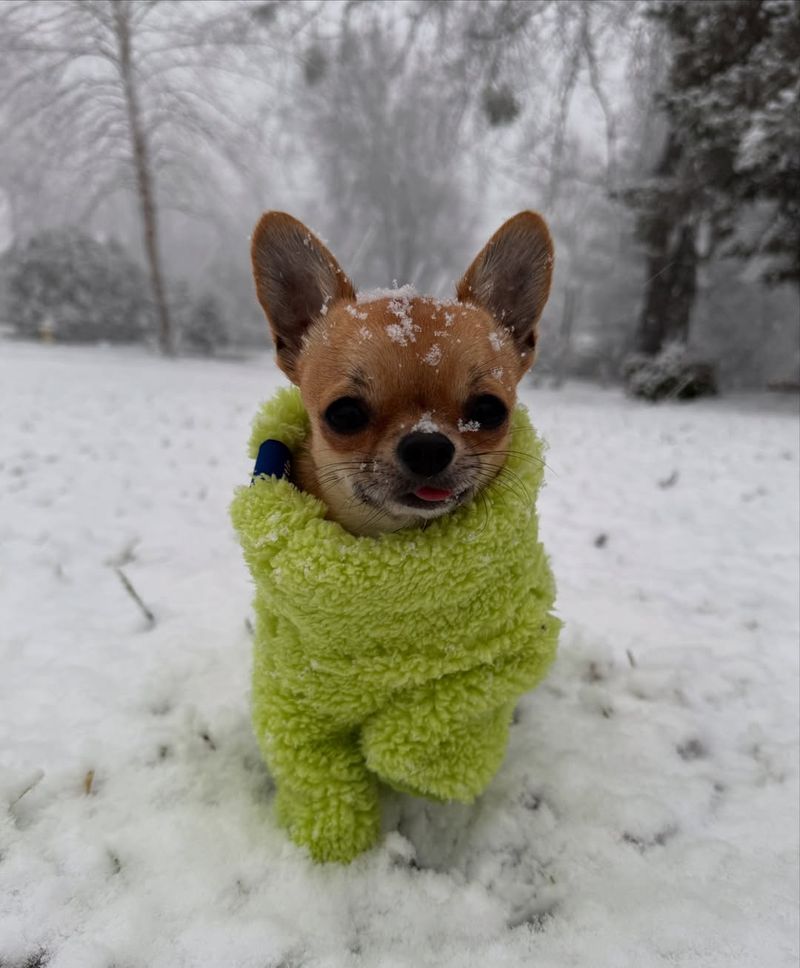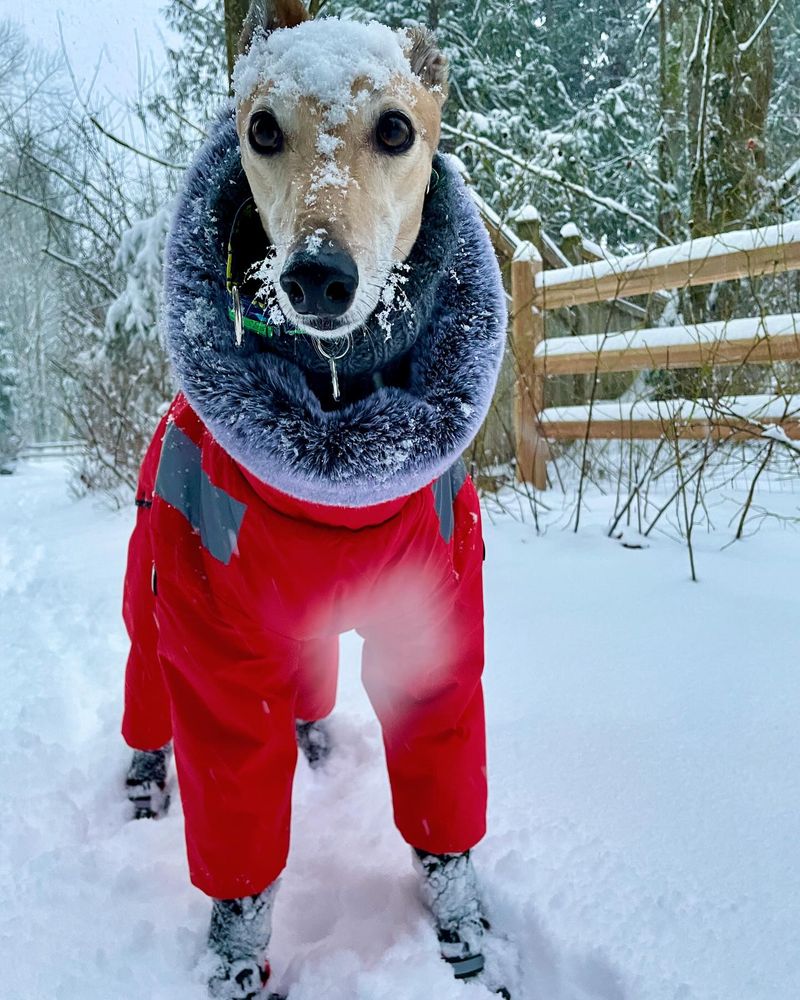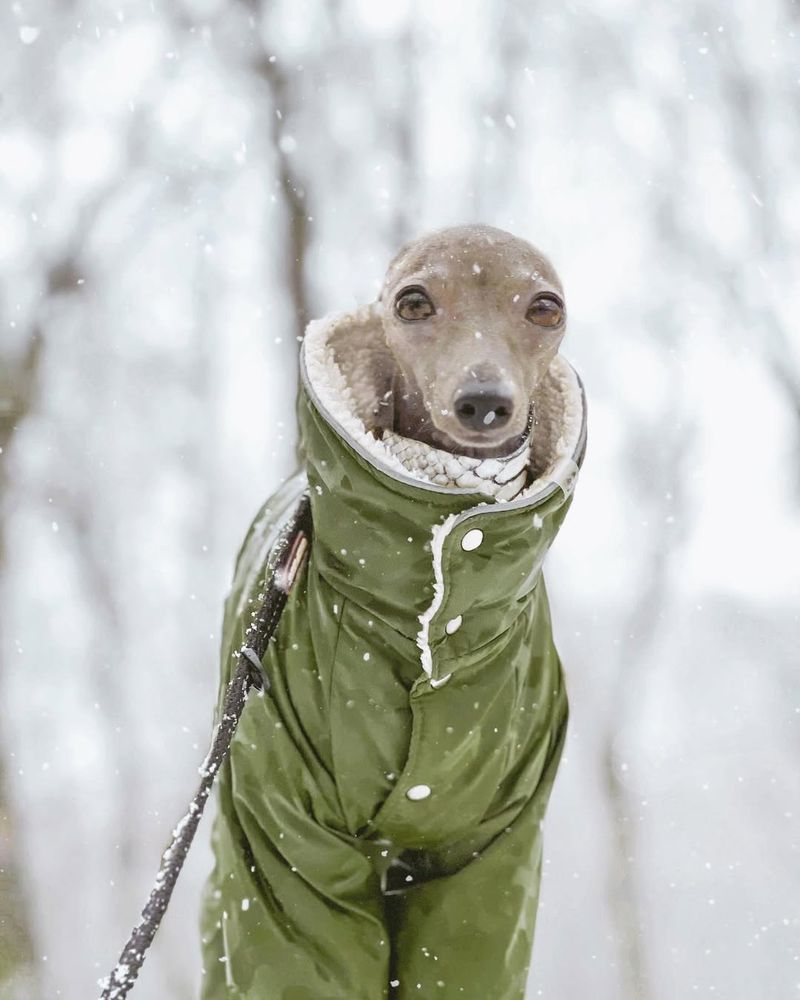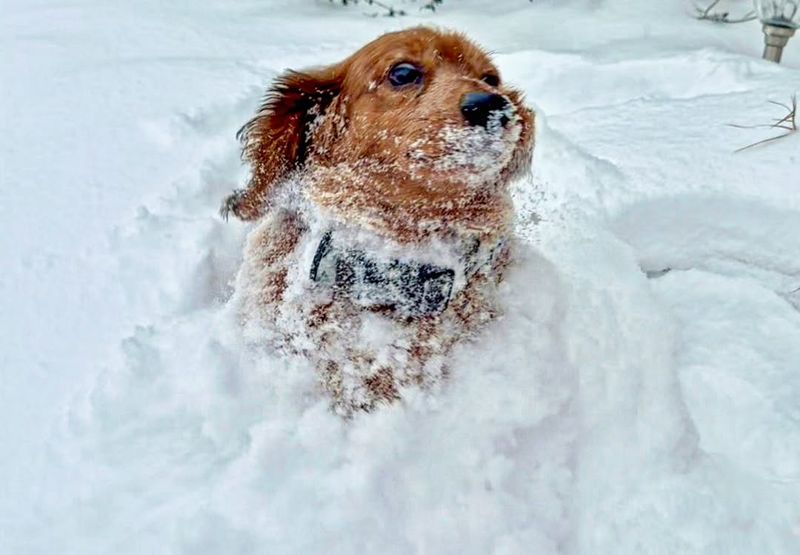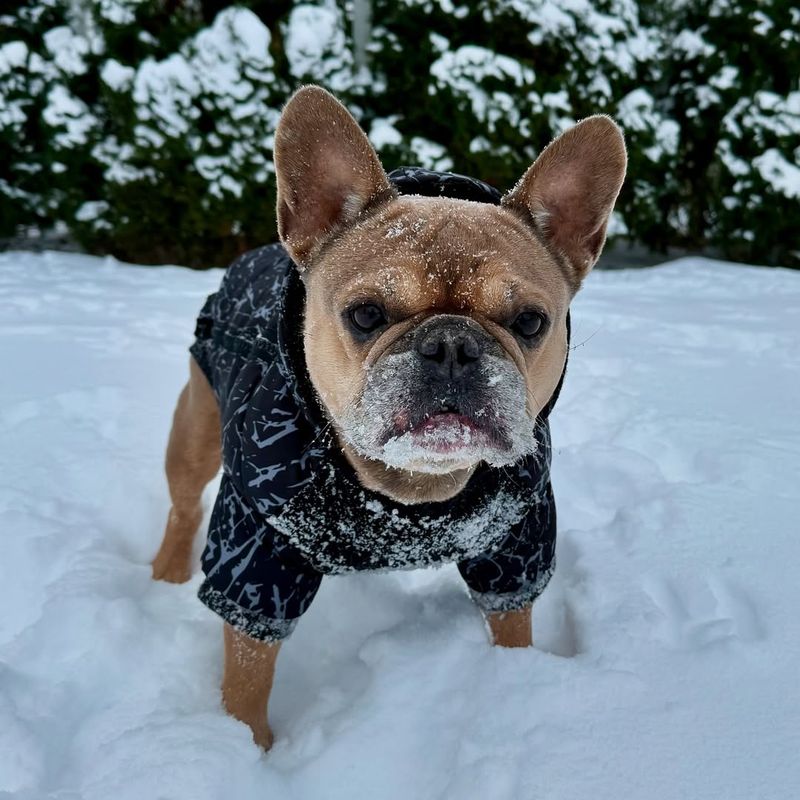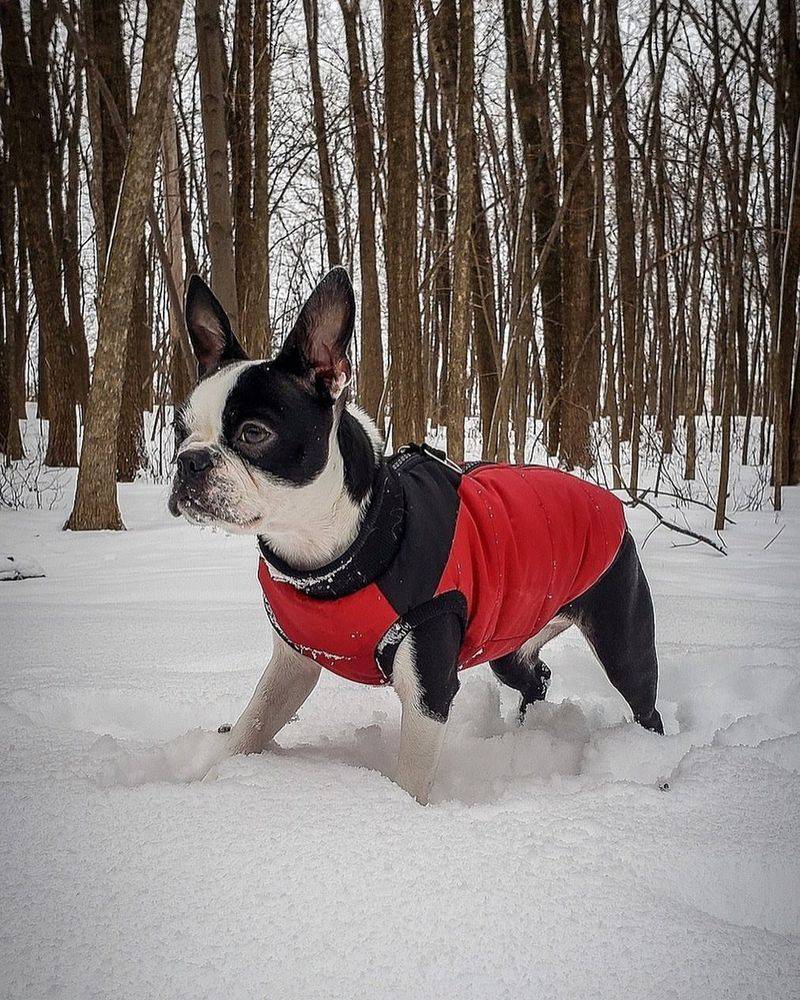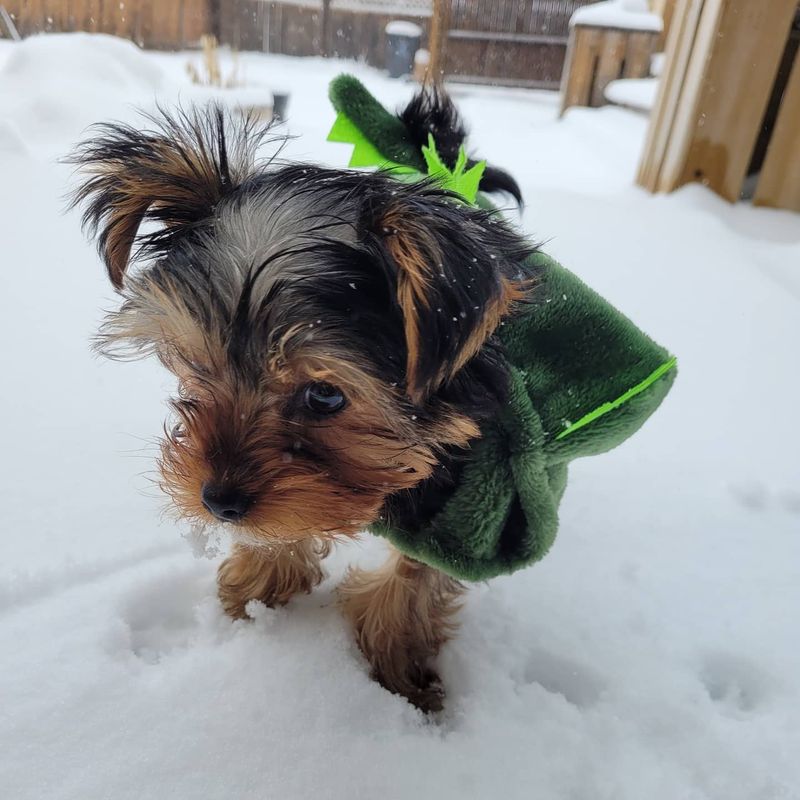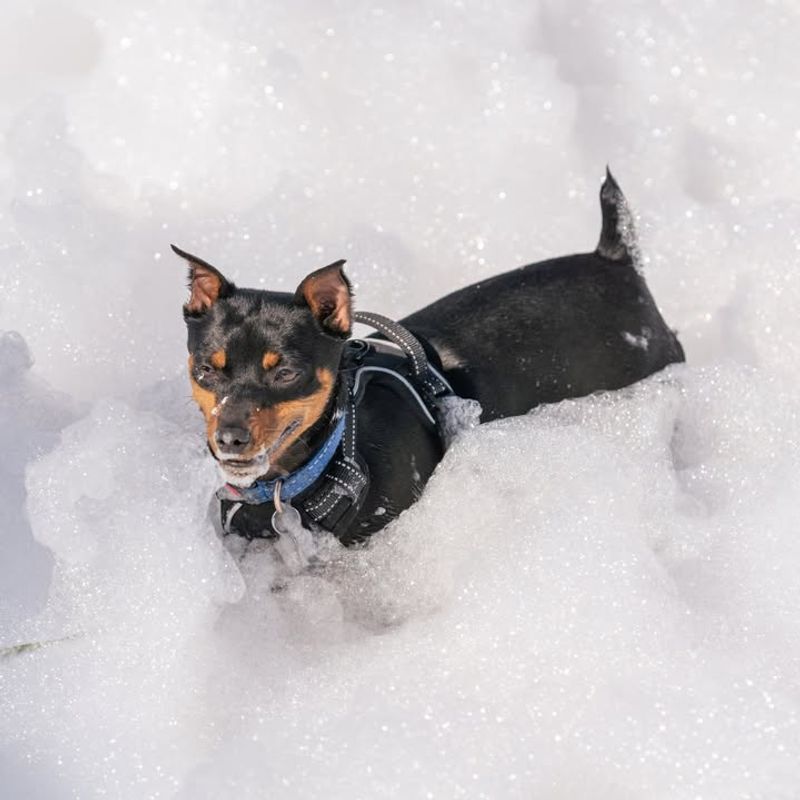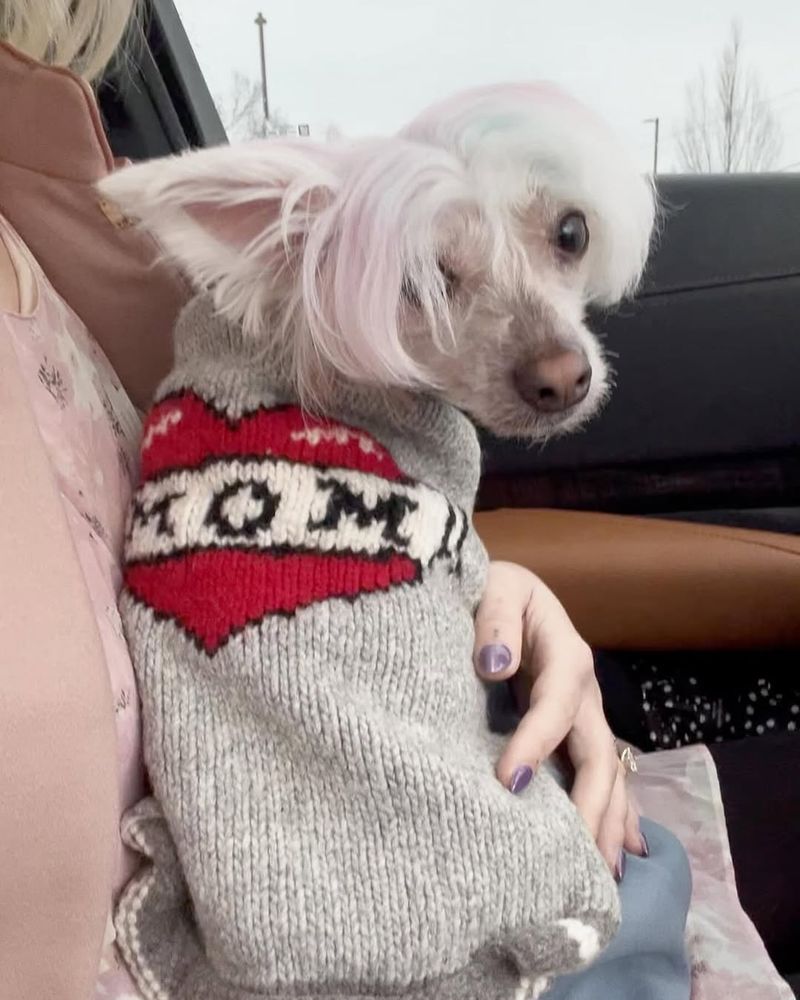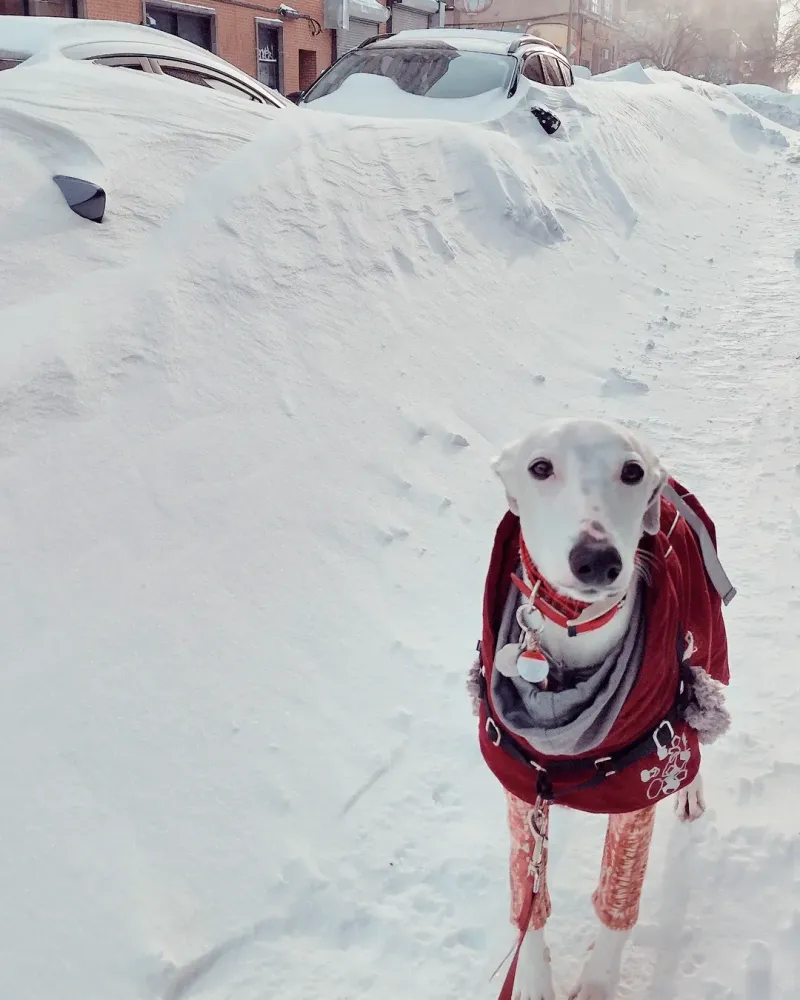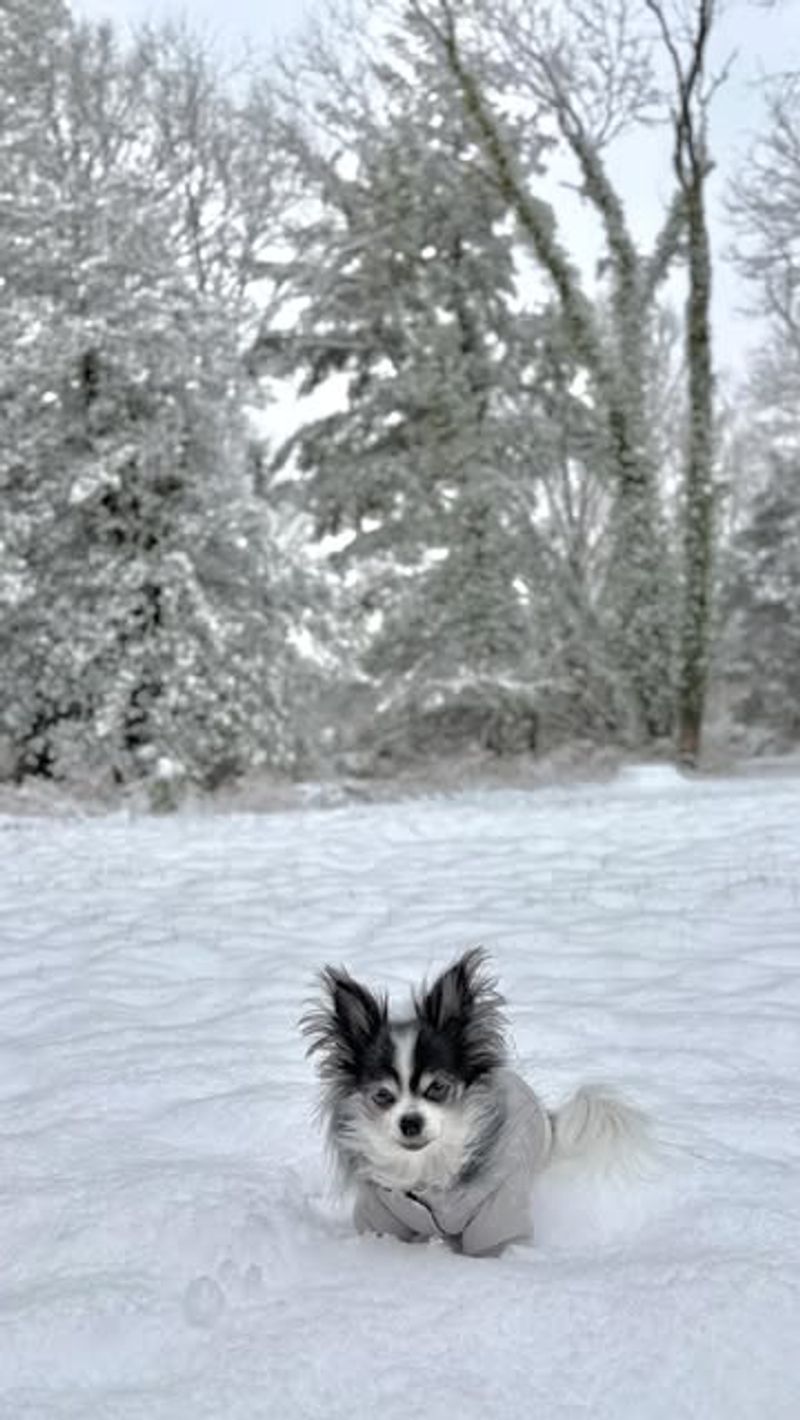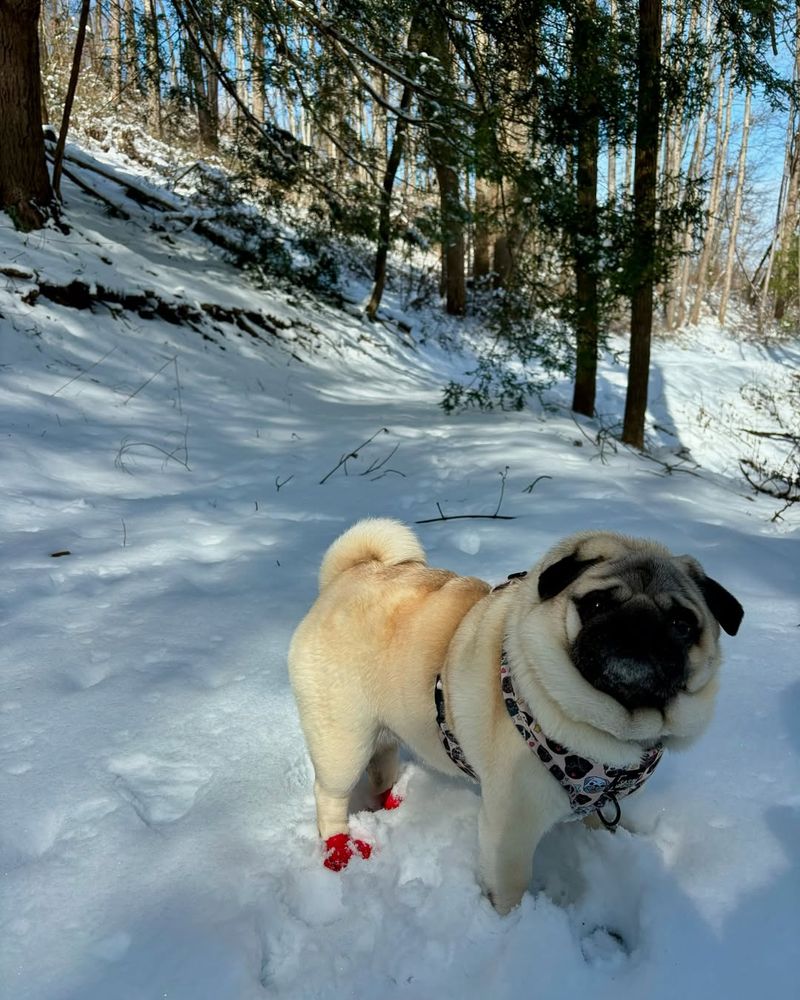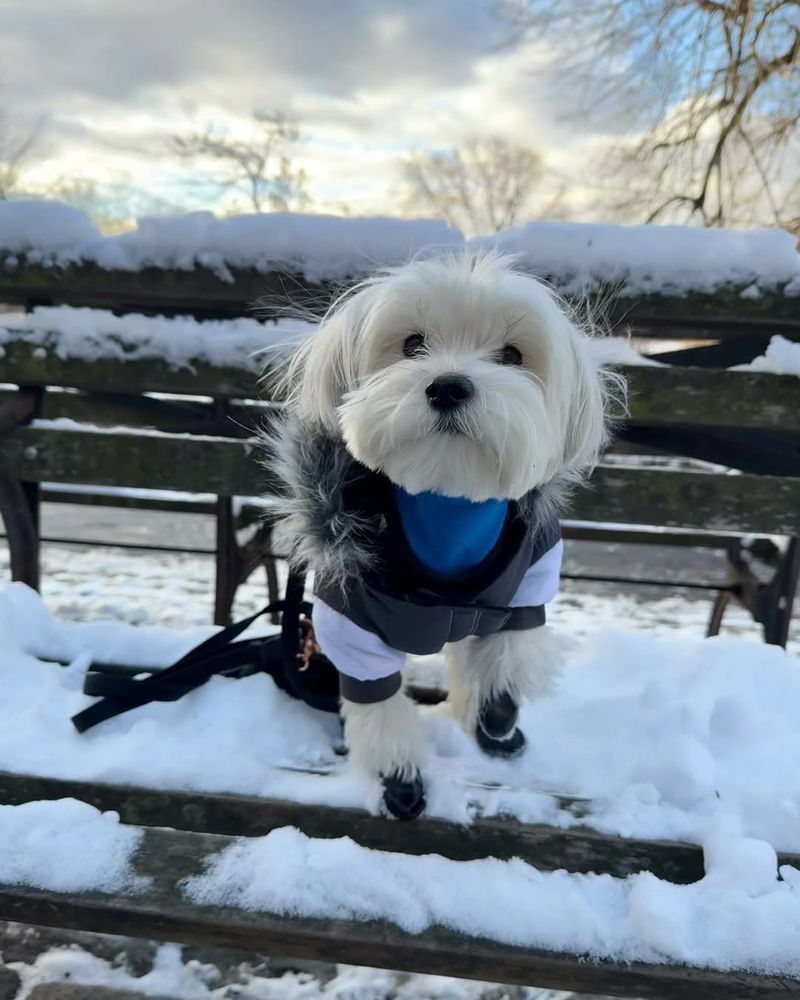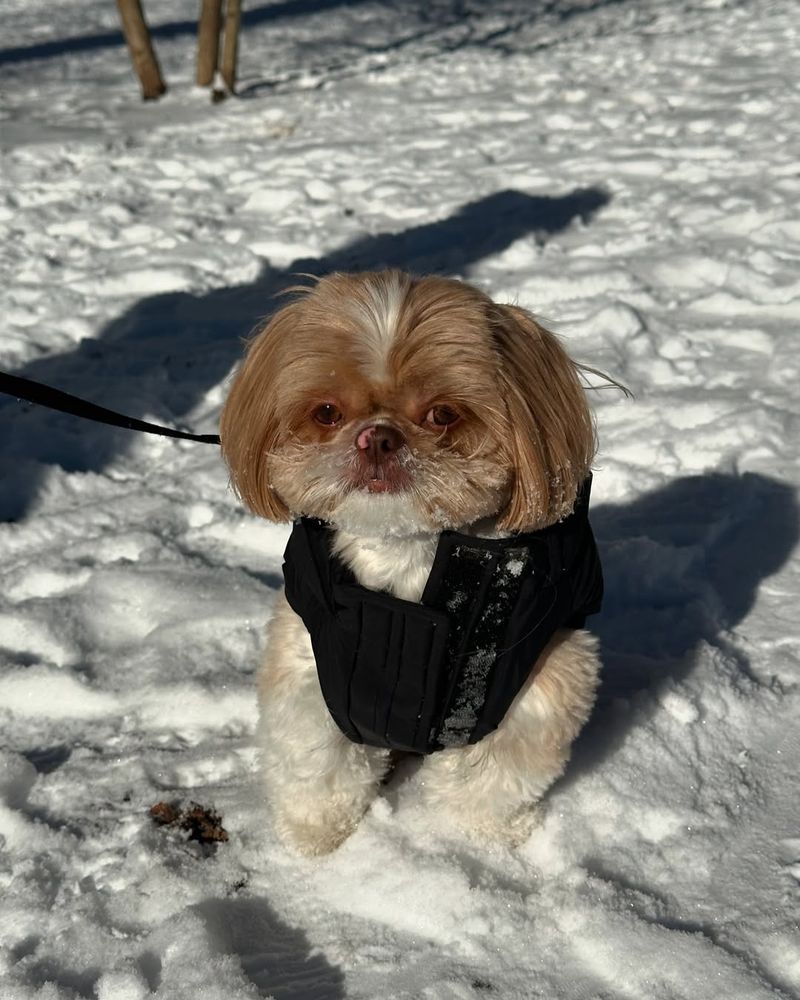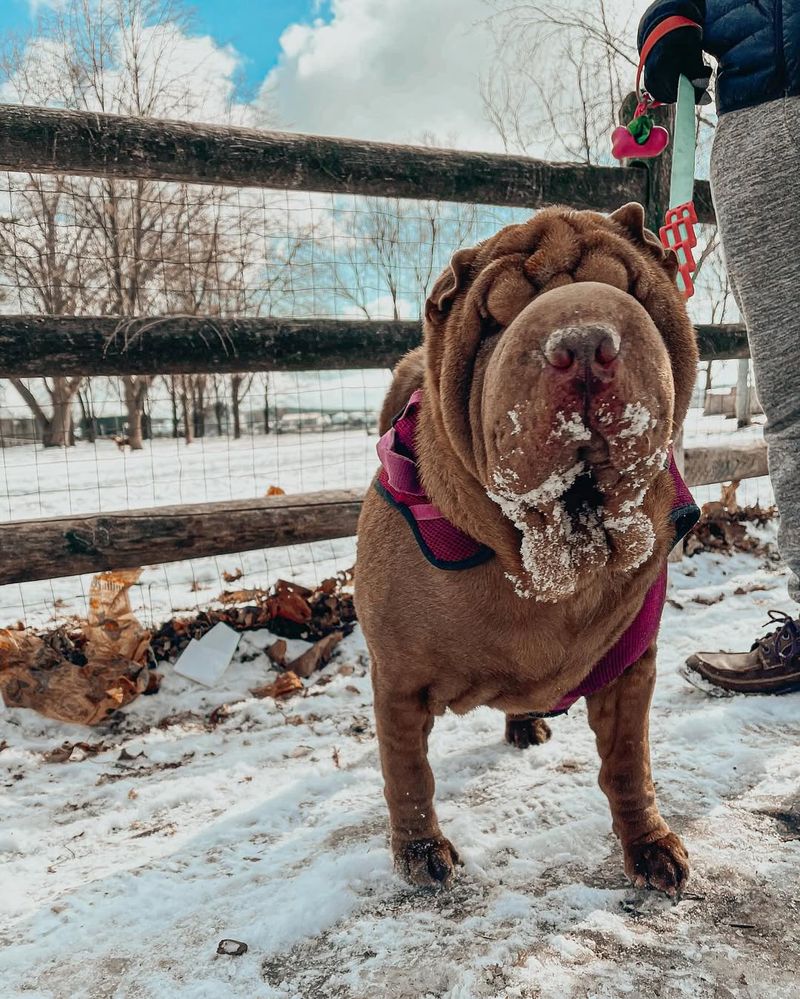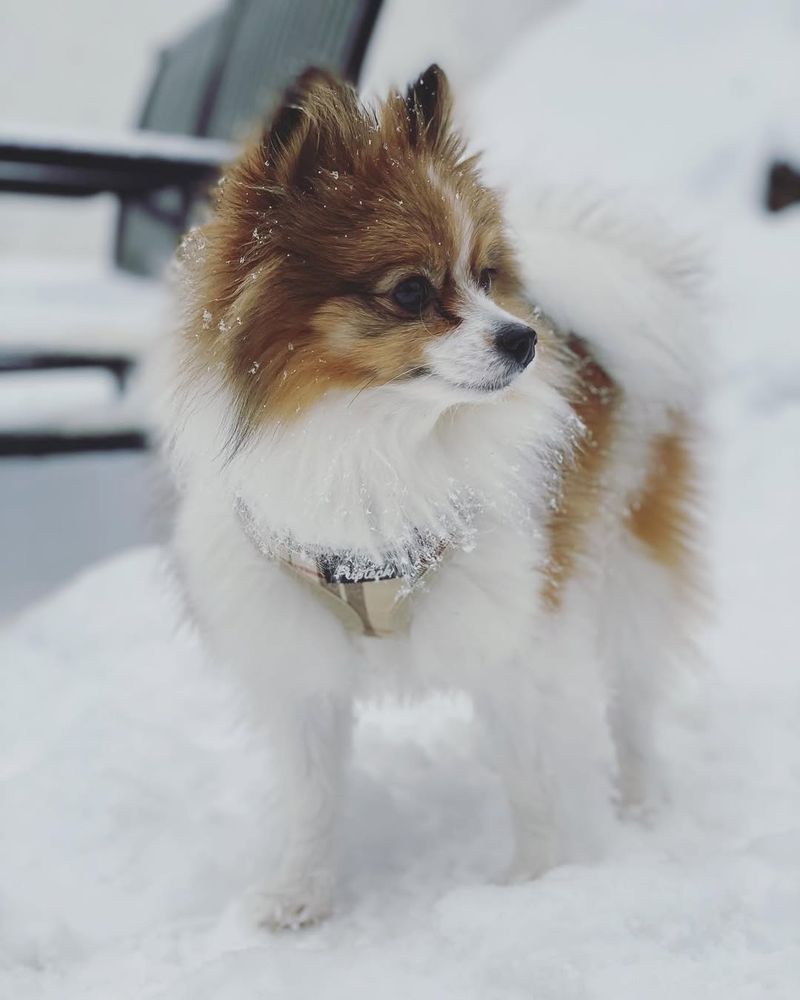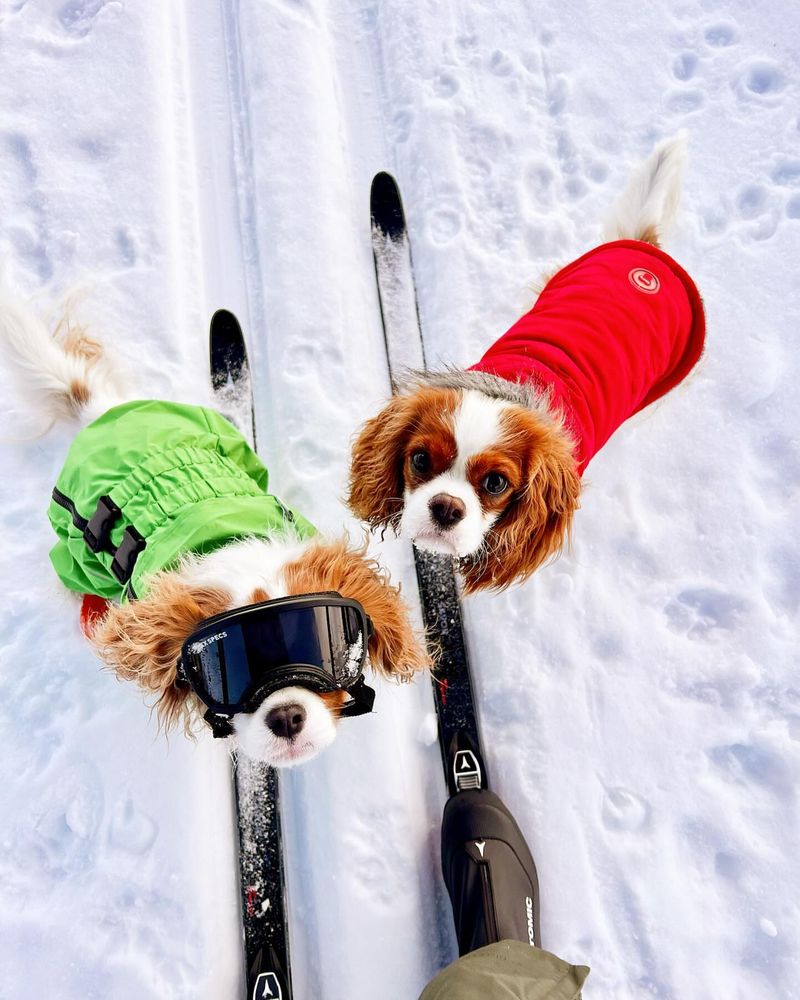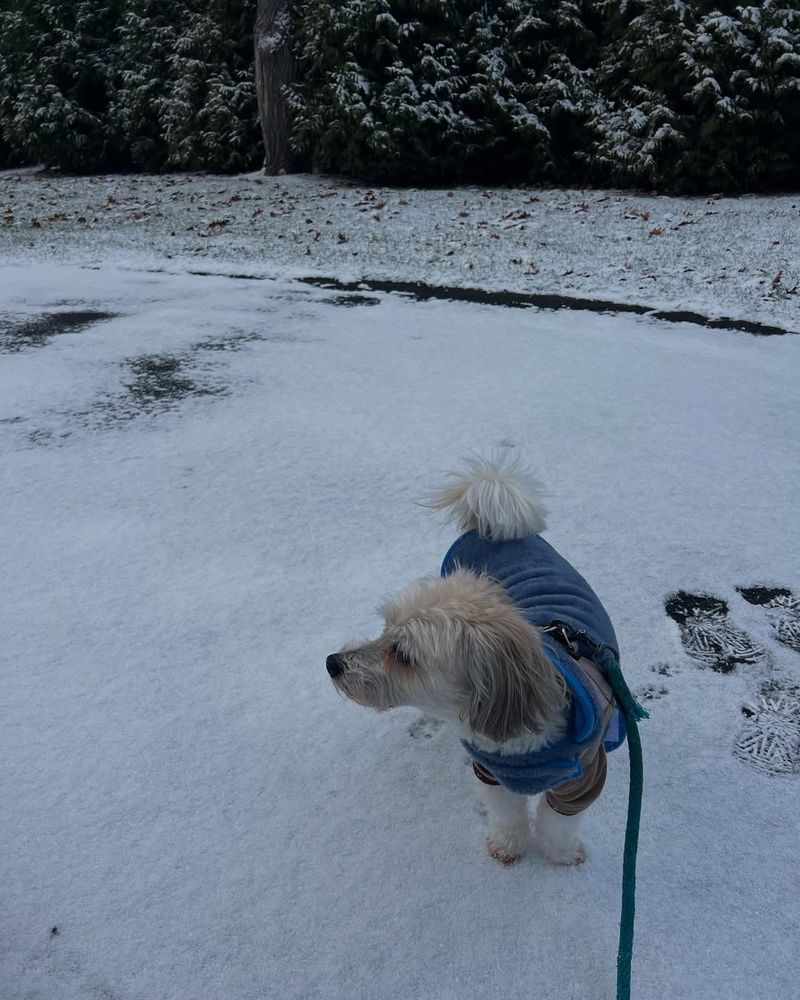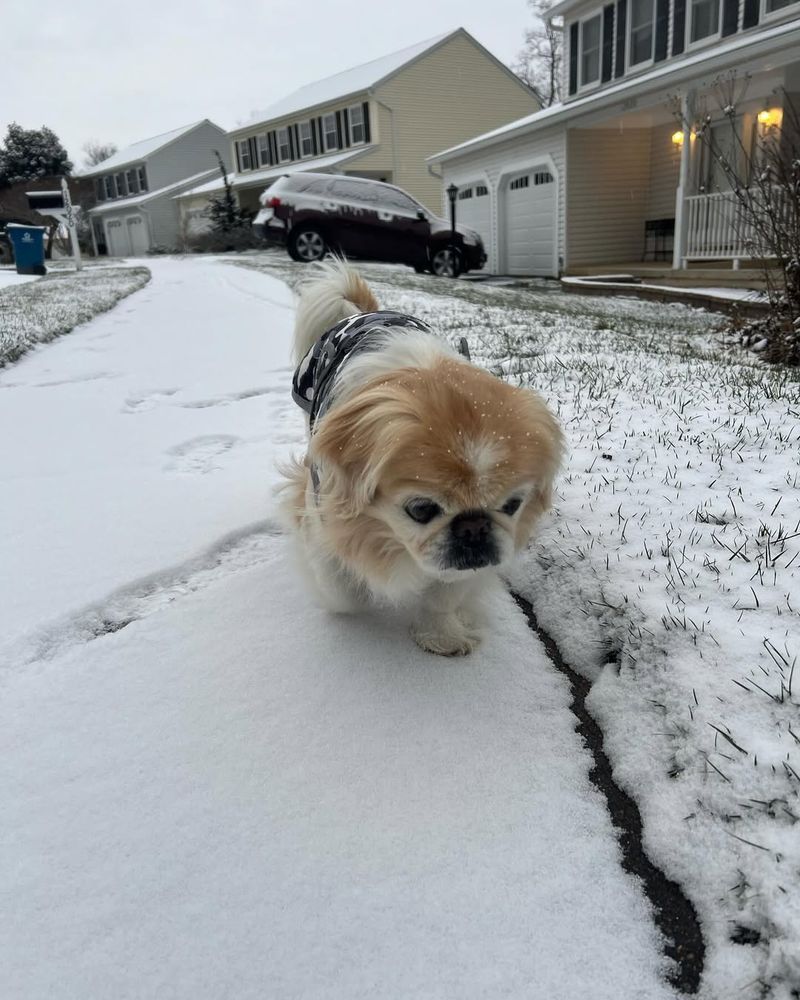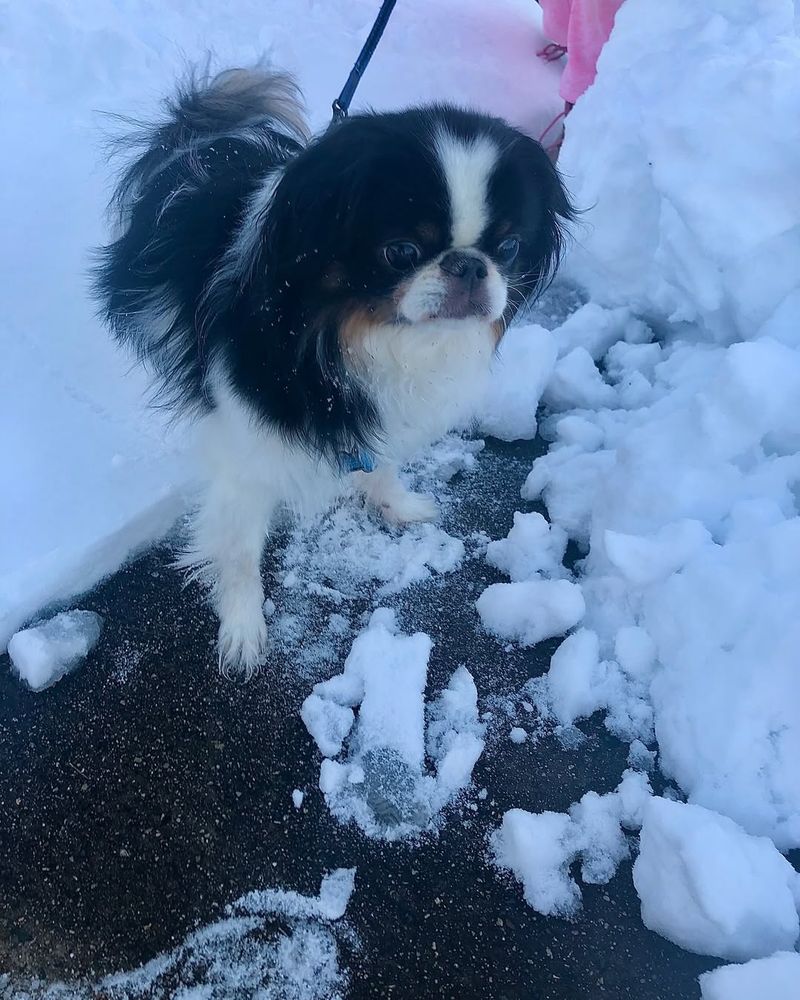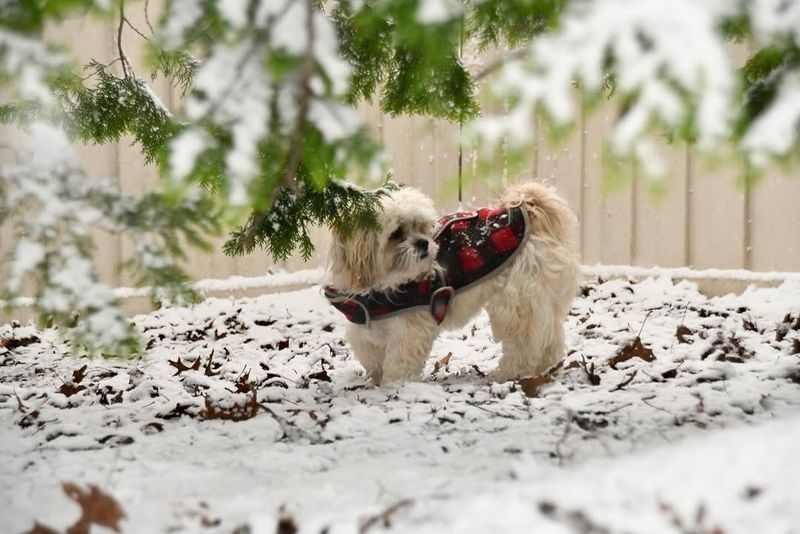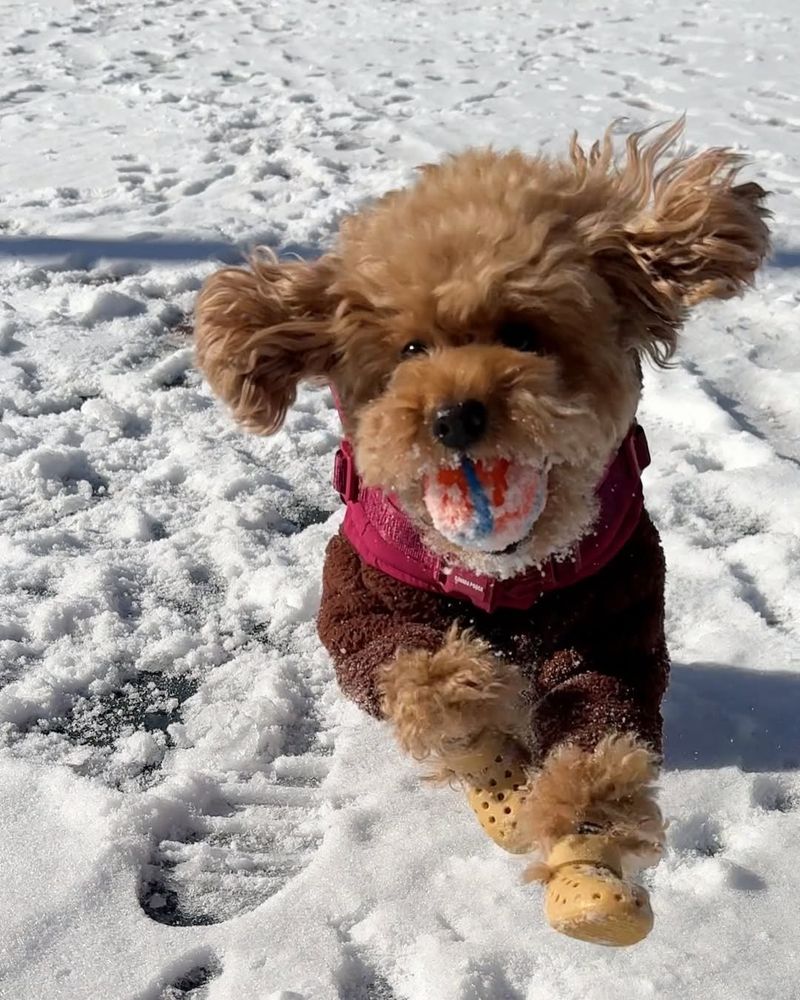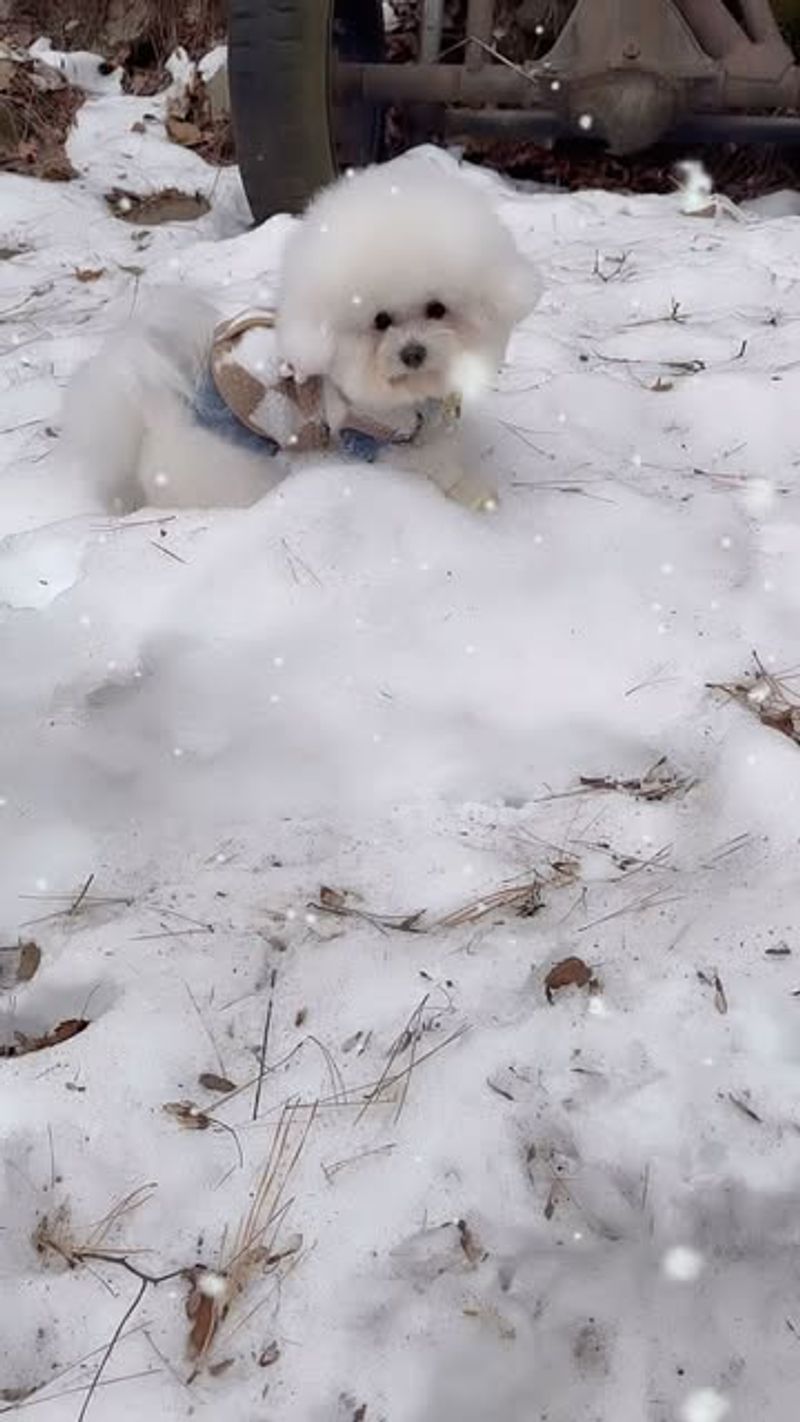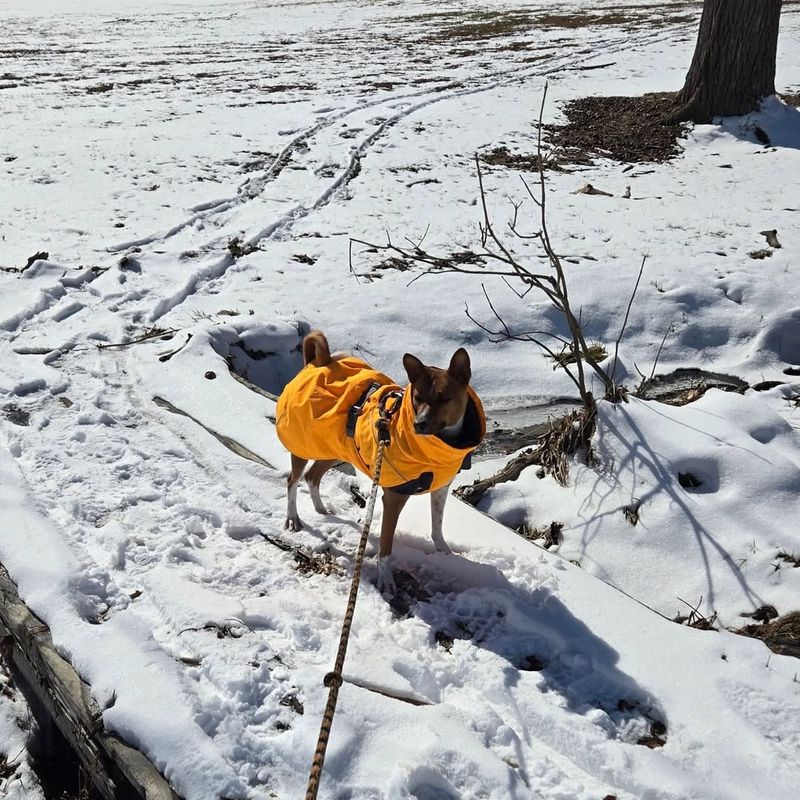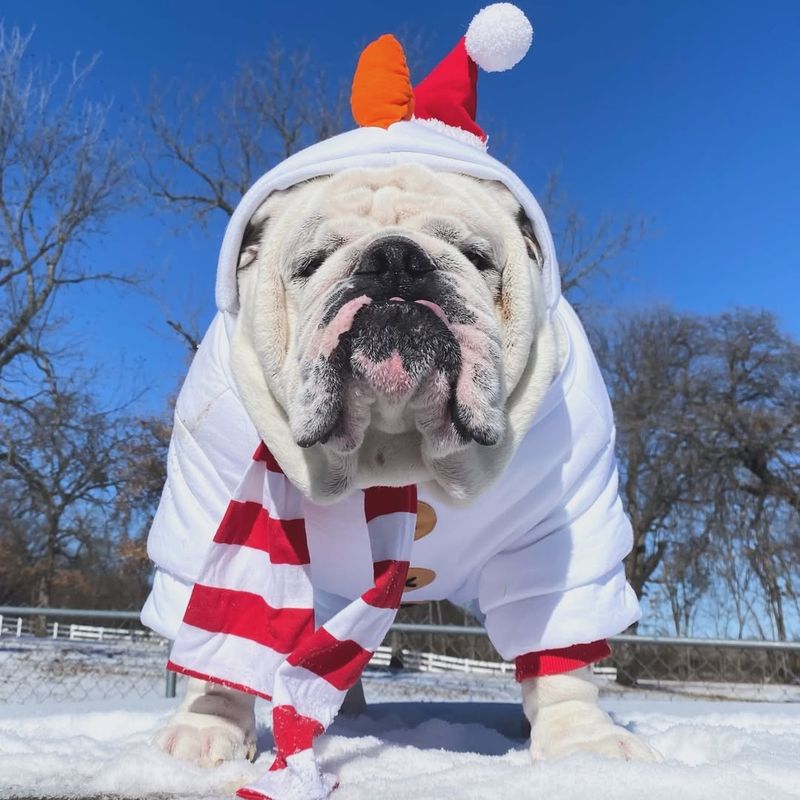Some dog breeds simply aren’t built for cold weather. While many breeds thrive in chilly climates, others can struggle when temperatures drop. This blog post explores 26 dog breeds that might prefer the warmth of indoors when winter arrives. These breeds typically have thin coats or small frames that don’t provide much insulation against the cold. Understanding which breeds need extra care during winter can help ensure their safety and comfort. If you own one of these breeds, consider investing in warm clothing or limiting outdoor time during particularly cold days.
Chihuahua
Chihuahuas are small dogs with thin coats, making them particularly vulnerable to cold temperatures. Their petite size means they lose body heat quickly, and they lack the insulating fur that protects other breeds. During cold spells, it’s advisable to keep them indoors where it’s warm and cozy. Sweaters or dog jackets can provide additional warmth when they venture outside. Consider investing in booties to protect their paws from ice and snow. Chihuahuas thrive in warm environments, so ensuring they stay comfortable during winter is crucial for their well-being and happiness.
Greyhound
Greyhounds are known for their sleek, athletic build and thin coat, which offers little protection against cold weather. Their low body fat is great for racing but not for keeping warm. In freezing temperatures, they should stay indoors where it’s warm. A comfortable bed or blanket can provide extra warmth. When going outside, a doggy coat is a must-have to retain body heat. Greyhounds enjoy lounging, so a spot near the heater or fireplace can quickly become their favorite during winter months.
Italian Greyhound
Much like their larger counterparts, Italian Greyhounds have short coats and minimal body fat, making them ill-suited for the cold. They require warm clothing and limited exposure to cold weather. Indoors, they love snuggling under blankets or basking in the warmth of a sunny window spot. Booties can help protect their sensitive paws when they must go outside. These dogs are best kept as indoor companions during the colder months, where they can enjoy warmth and security.
Dachshund
Dachshunds have a slender build and a short coat that doesn’t fare well in freezing temperatures. Their long bodies and small stature make them prone to losing body heat. Providing them with a warm coat and limiting their time outside can help keep them comfortable. Indoors, they enjoy burrowing under blankets or lounging on soft, warm surfaces. Dachshunds are playful and affectionate, and ensuring they stay warm helps maintain their health and happiness throughout the colder months.
French Bulldog
French Bulldogs are charming and sturdy, but their short coats and brachycephalic nature make them sensitive to cold weather. They benefit greatly from wearing warm clothing outdoors and shouldn’t be left outside for extended periods. Indoors, providing a warm bed near a heat source ensures their comfort. These affectionate dogs thrive on companionship, and staying indoors during cold days means more time for cuddles and bonding. Be mindful of their breathing, as cold air can exacerbate respiratory issues.
Boston Terrier
Boston Terriers, with their sleek coats and muscular frames, aren’t equipped to handle harsh cold weather. Their short noses make them more susceptible to breathing difficulties in frigid air. Ensuring they wear proper winter clothing and limiting outdoor time is essential. Indoors, they enjoy warm environments where they can relax and play. Providing a cozy space with blankets or a heated pet bed can make winter more enjoyable for them. Boston Terriers are lively and love attention, making indoor playtime a great way to keep them active.
Yorkshire Terrier
Yorkshire Terriers, with their fine, silky coats, require extra protection in cold weather. Though their coats can be long, they offer little insulation against the chill. Keeping them indoors during winter is wise, and outdoor excursions should be brief and include a warm coat. Indoors, they appreciate soft blankets and warm laps, basking in the comfort of their home. These tiny dogs have big personalities and thrive in environments where they feel secure and loved.
Miniature Pinscher
Miniature Pinschers are small and have thin coats, making them vulnerable to cold. Their energetic nature means they need exercise, but in winter, this should be managed indoors or with appropriate clothing. A warm sweater and quick outdoor breaks suffice during freezing temperatures. Indoors, they enjoy interactive play and comfort. Keeping them active and warm ensures they remain healthy and happy despite the chill outside. Providing a cozy space helps these spirited dogs feel secure and content.
Chinese Crested
Chinese Crested dogs, often hairless or with minimal fur, are especially prone to the cold. They require clothing even for short outdoor trips during winter. Indoors, a heated area or cozy bed helps maintain their body temperature. Their delicate skin should be protected with garments to avoid chills. During winter, they benefit from indoor play and bonding time with their owners. These unique dogs are affectionate and thrive in warm, loving environments.
Whippet
Whippets, like Greyhounds, have sleek bodies with little insulation against the cold. They are sensitive to temperature changes and prefer the warmth of indoors when it’s freezing outside. A snug bed or a spot in the sun can help them stay comfortable. When outdoors, a warm coat is essential to prevent them from getting chilled. Whippets are affectionate and enjoy the company of their family, making indoor time a perfect opportunity for bonding and relaxation.
Papillon
Papillons have charming, butterfly-like ears and medium-length coats, which aren’t enough to keep them warm in freezing weather. They should stay indoors during cold spells, with outdoor time limited and protective clothing used. Indoors, they enjoy interactive play and warm spots to rest. Providing a cozy environment with access to toys and companionship keeps them happy. Papillons are lively and intelligent, and ensuring they remain active and comfortable during winter is key to their well-being.
Pug
Pugs have short coats and are brachycephalic, which makes them susceptible to cold and respiratory issues. Keeping them indoors during winter is crucial for their health. They thrive in warm environments and enjoy social interaction, making indoor time perfect for bonding. A warm bed and limited outdoor exposure with protective clothing help maintain their comfort. Pugs are playful and loving, and ensuring they are cozy and secure during the colder months keeps them healthy and happy.
Maltese
Maltese dogs, with their long, silky hair, may seem equipped for the cold, but they lack the undercoat needed for insulation. Keeping them indoors and warm is advisable during winter. When outside, a coat is necessary to retain body heat. Indoors, they enjoy the comfort of blankets and laps. These affectionate dogs thrive on companionship and warmth, making them ideal indoor pets during the cold months. Ensuring their coat stays clean and groomed helps maintain their health.
Shih Tzu
Shih Tzus have luxurious coats, but they still need protection from extreme cold. Their small size makes them prone to losing body heat quickly. Limiting outdoor time and providing warm clothing helps keep them comfortable. Indoors, they enjoy the warmth of cozy spots and the companionship of their family. A heated pet bed or blanket can make winter more pleasant for them. Shih Tzus are affectionate and playful, and ensuring they stay warm keeps them healthy and happy.
Chinese Shar-Pei
Chinese Shar-Peis have loose skin and short coats, making them susceptible to the cold. They require warm clothing for outdoor activities and should primarily stay indoors during winter. Providing a heated bed or blanket ensures their comfort. These dogs are known for their loyalty and enjoy spending time with their families, making indoor activities a great way to strengthen bonds. Keeping them warm and secure during the cold months is essential for their well-being.
Pomeranian
Pomeranians have thick, fluffy coats, but their small size makes them vulnerable to cold temperatures. They should remain indoors and wear warm clothing when outside. These energetic dogs enjoy interactive play and the comfort of a warm home. Providing a cozy space with plenty of blankets helps keep them comfortable. Pomeranians thrive on attention and love, making indoor activities a wonderful way to engage with them. Ensuring they stay warm and active contributes to their overall health and happiness.
Cavalier King Charles Spaniel
Cavalier King Charles Spaniels, with their silky coats, need protection against the cold. They are best kept indoors during winter, with outdoor time limited and accompanied by warm clothing. Indoors, they enjoy soft bedding and the warmth of their family. These affectionate dogs thrive on companionship and warmth, making them ideal indoor pets during colder months. Ensuring they are comfortable and secure helps maintain their health and happiness. Regular grooming is also important to keep their coat in good condition.
Havanese
Havanese dogs, with their long, silky coats, appear suited for cold weather but lack the undercoat needed for insulation. They should remain indoors during freezing temperatures, wearing coats when outside. These dogs enjoy warmth and companionship, thriving in cozy and loving environments. Providing soft bedding and regular grooming helps maintain their health and comfort. Havanese are playful and affectionate, making indoor time perfect for bonding and interactive play. Keeping them warm ensures they are happy and healthy even during winter.
Pekingese
Pekingese dogs have thick coats, but their small size and brachycephalic nature make them vulnerable to cold. They should stay indoors during freezing temperatures, with outdoor excursions kept brief and in warm clothing. Indoors, they enjoy the comfort of warm beds and the company of their family. These loyal dogs thrive on affection and attention, making them ideal indoor companions during the cold months. Ensuring they are cozy and secure contributes to their overall well-being.
Japanese Chin
Japanese Chins have silky coats but are small and sensitive to cold weather. They should be kept indoors during winter, with limited exposure outdoors and protective clothing necessary. Indoors, they appreciate warm, cozy spots and gentle companionship. Providing a comfortable environment with soft bedding helps keep them happy and healthy. These dogs are affectionate and enjoy interactive play, making indoor time a great opportunity for bonding. Keeping them warm and secure ensures their well-being during colder months.
Lhasa Apso
Lhasa Apsos, with their long, flowing coats, still require protection from the cold. They are best kept indoors during winter, with outdoor activities shortened and accompanied by warm clothing. Indoors, they enjoy soft bedding and the company of their family. These dogs are loyal and thrive on attention, making them ideal indoor companions during the cold months. Ensuring they stay warm and comfortable helps maintain their health and happiness. Regular grooming is also important to keep their coat in good condition.
Toy Poodle
Toy Poodles have curly coats that offer some warmth, but their small size makes them vulnerable to the cold. They should remain indoors during freezing temperatures, with outdoor time limited and warm clothing provided. Indoors, they enjoy interactive play and cozy spots to rest. Providing a comfortable environment with plenty of love and attention keeps them happy. Toy Poodles are intelligent and energetic, making indoor activities a great way to engage them during the colder months.
Bichon Frise
Bichon Frises have fluffy coats that offer some protection, but they still need to be kept warm during winter. They should stay indoors when temperatures drop, wearing coats for short outdoor excursions. Indoors, they enjoy warmth and companionship, thriving in cozy environments. Providing soft bedding and interactive play ensures they remain healthy and happy. Bichon Frises are affectionate and lively, making indoor time a perfect opportunity for bonding and fun activities.
Basenji
Basenjis have short coats and are not equipped for cold weather. They should stay indoors during winter, with outdoor time limited and accompanied by warm clothing. Indoors, they enjoy lounging in warm spots and playing with their family. Providing a cozy environment with soft bedding helps maintain their comfort and well-being. Basenjis are independent and playful, and keeping them warm ensures they remain healthy and happy even during the colder months.
English Bulldog
English Bulldogs, with their short coats and brachycephalic structure, are not suited for cold weather. They should remain indoors during winter, with outdoor excursions brief and in warm clothing. Indoors, they enjoy lounging in cozy spots and the company of their family. Providing a comfortable environment with plenty of love and attention keeps them happy. Bulldogs are gentle and affectionate, and ensuring they are warm and secure contributes to their overall health and happiness.
